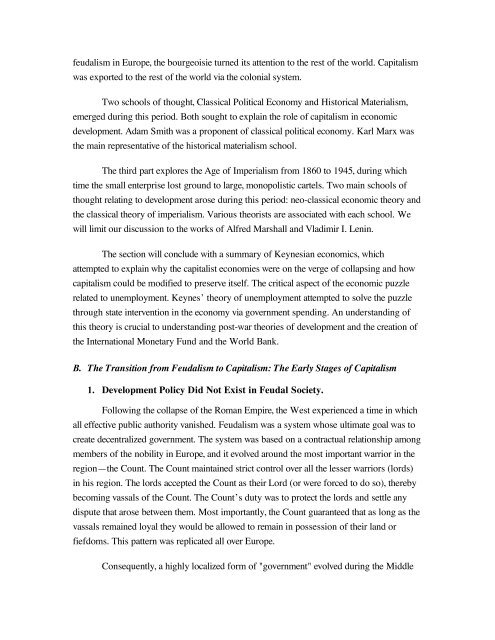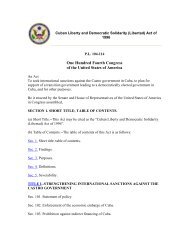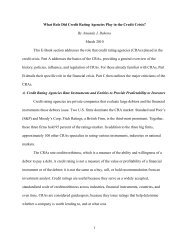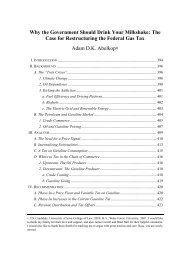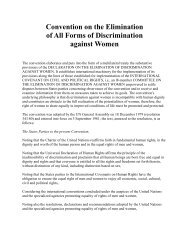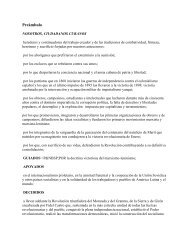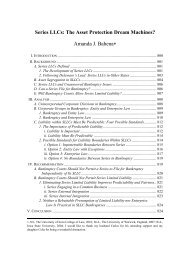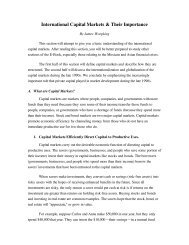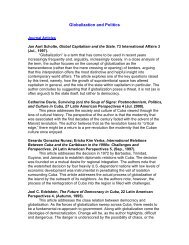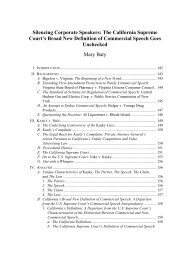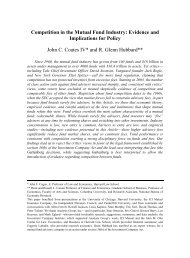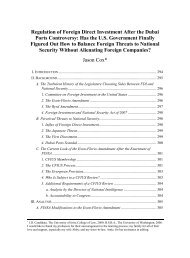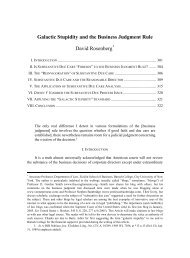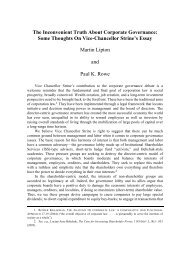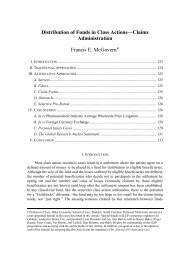How the Concept of Development Got Started
How the Concept of Development Got Started
How the Concept of Development Got Started
Create successful ePaper yourself
Turn your PDF publications into a flip-book with our unique Google optimized e-Paper software.
feudalism in Europe, <strong>the</strong> bourgeoisie turned its attention to <strong>the</strong> rest <strong>of</strong> <strong>the</strong> world. Capitalism<br />
was exported to <strong>the</strong> rest <strong>of</strong> <strong>the</strong> world via <strong>the</strong> colonial system.<br />
Two schools <strong>of</strong> thought, Classical Political Economy and Historical Materialism,<br />
emerged during this period. Both sought to explain <strong>the</strong> role <strong>of</strong> capitalism in economic<br />
development. Adam Smith was a proponent <strong>of</strong> classical political economy. Karl Marx was<br />
<strong>the</strong> main representative <strong>of</strong> <strong>the</strong> historical materialism school.<br />
The third part explores <strong>the</strong> Age <strong>of</strong> Imperialism from 1860 to 1945, during which<br />
time <strong>the</strong> small enterprise lost ground to large, monopolistic cartels. Two main schools <strong>of</strong><br />
thought relating to development arose during this period: neo-classical economic <strong>the</strong>ory and<br />
<strong>the</strong> classical <strong>the</strong>ory <strong>of</strong> imperialism. Various <strong>the</strong>orists are associated with each school. We<br />
will limit our discussion to <strong>the</strong> works <strong>of</strong> Alfred Marshall and Vladimir I. Lenin.<br />
The section will conclude with a summary <strong>of</strong> Keynesian economics, which<br />
attempted to explain why <strong>the</strong> capitalist economies were on <strong>the</strong> verge <strong>of</strong> collapsing and how<br />
capitalism could be modified to preserve itself. The critical aspect <strong>of</strong> <strong>the</strong> economic puzzle<br />
related to unemployment. Keynes’ <strong>the</strong>ory <strong>of</strong> unemployment attempted to solve <strong>the</strong> puzzle<br />
through state intervention in <strong>the</strong> economy via government spending. An understanding <strong>of</strong><br />
this <strong>the</strong>ory is crucial to understanding post-war <strong>the</strong>ories <strong>of</strong> development and <strong>the</strong> creation <strong>of</strong><br />
<strong>the</strong> International Monetary Fund and <strong>the</strong> World Bank.<br />
B. The Transition from Feudalism to Capitalism: The Early Stages <strong>of</strong> Capitalism<br />
1. <strong>Development</strong> Policy Did Not Exist in Feudal Society.<br />
Following <strong>the</strong> collapse <strong>of</strong> <strong>the</strong> Roman Empire, <strong>the</strong> West experienced a time in which<br />
all effective public authority vanished. Feudalism was a system whose ultimate goal was to<br />
create decentralized government. The system was based on a contractual relationship among<br />
members <strong>of</strong> <strong>the</strong> nobility in Europe, and it evolved around <strong>the</strong> most important warrior in <strong>the</strong><br />
region—<strong>the</strong> Count. The Count maintained strict control over all <strong>the</strong> lesser warriors (lords)<br />
in his region. The lords accepted <strong>the</strong> Count as <strong>the</strong>ir Lord (or were forced to do so), <strong>the</strong>reby<br />
becoming vassals <strong>of</strong> <strong>the</strong> Count. The Count’s duty was to protect <strong>the</strong> lords and settle any<br />
dispute that arose between <strong>the</strong>m. Most importantly, <strong>the</strong> Count guaranteed that as long as <strong>the</strong><br />
vassals remained loyal <strong>the</strong>y would be allowed to remain in possession <strong>of</strong> <strong>the</strong>ir land or<br />
fiefdoms. This pattern was replicated all over Europe.<br />
Consequently, a highly localized form <strong>of</strong> "government" evolved during <strong>the</strong> Middle


